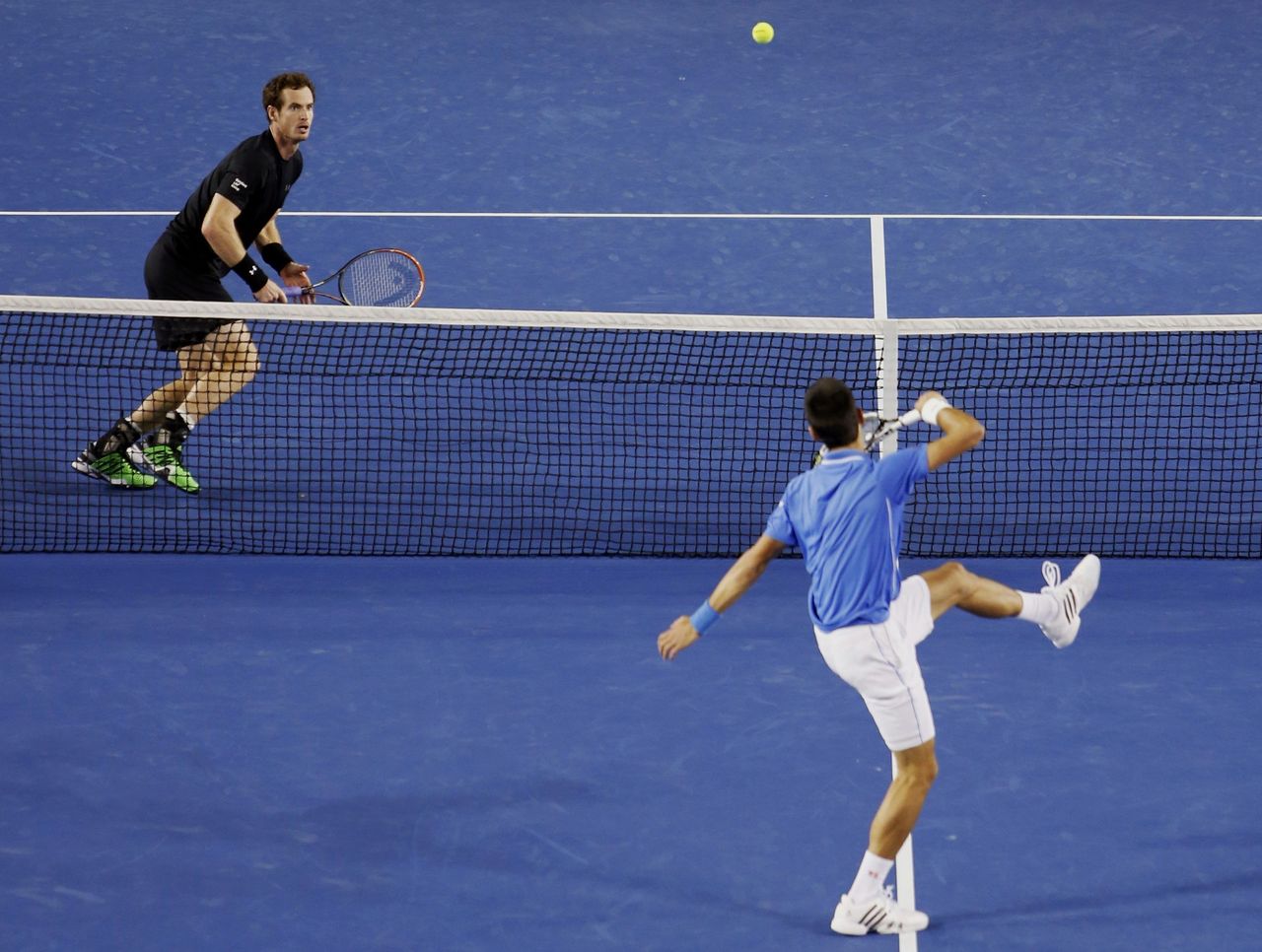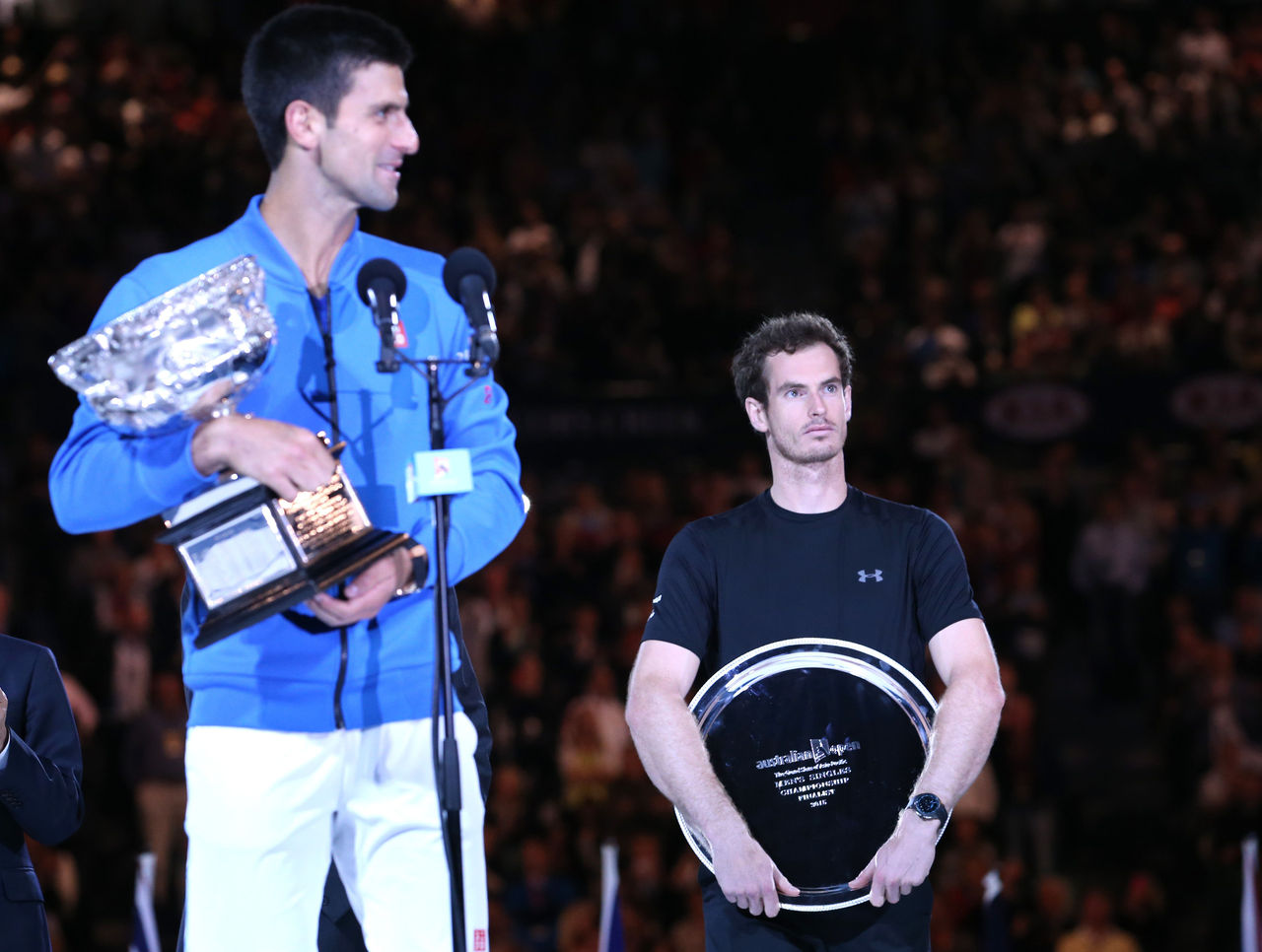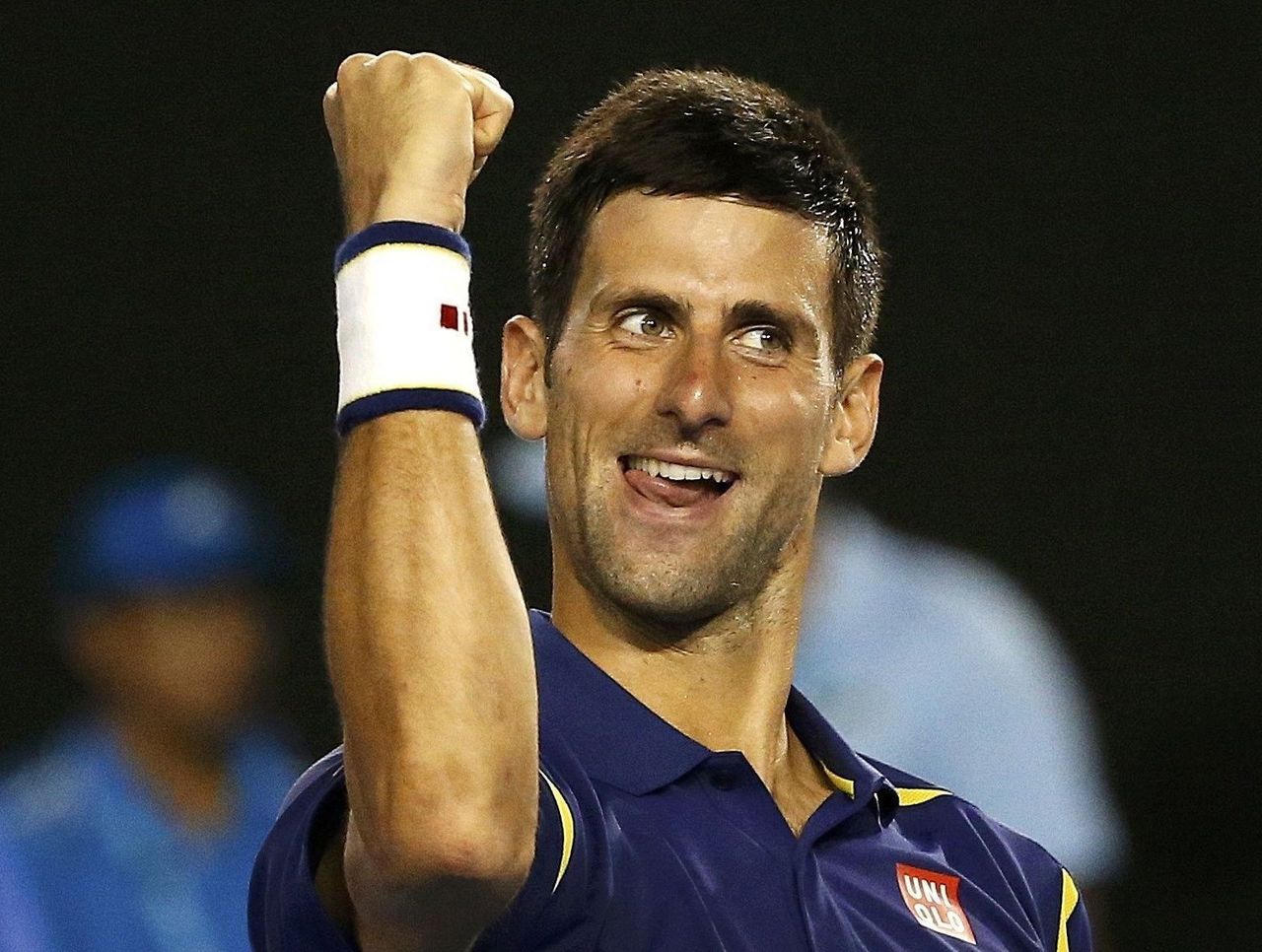Always a bridesmaid, Andy Murray looks to gown up in his 5th Aussie Open final
A day after losing last year's Australian Open final, again, to longtime foil Novak Djokovic, Andy Murray lost his runner-up plate - the consolation prize he received just for showing up to the match.
You understood why he didn't feel any great desire to hang onto the thing; he'd seen enough of it for one lifetime. If he ends up holding the plate again on Sunday - while watching Djokovic make another victory speech - we may never find it.
It's some kinda tangled web of success and failure Murray's spun in Melbourne. He's now made more finals at the Aussie Open than he has at all the other Slams combined, and he's one of just four men in the Open Era (along with Djokovic, Roger Federer, and Stefan Edberg) to have reached the final five times. The other three, though, won the tournament a combined 13 times; Murray is 0-for-4. No man's ever lost that many Australian Open finals, and if Murray loses Sunday, he'll be the first man to finish runner-up at any Slam five times without winning it.
We'd be telling an entirely different story if Djokovic hadn't been quietly consolidating a vise grip on the tennis season's annual first major. He's won the Aussie Open a record five times, four in the past five years and thrice over Murray. This will be the sixth of Murray's nine Grand Slam finals to pit him against Djokovic. Murray is 2-0 in the Northern Hemisphere, and 0-3 Down Under.
A slept-on rivalry

In an era that's come to be defined by rivalries - between Federer and Djokovic, Djokovic and Rafa Nadal, Nadal and Federer - Murray hasn't forged an intimate professional enmity that sticks out in the mind, probably because he's a combined 26-51 against those other three. But his head-to-head with Djokovic, though without many shippers, is subtly among the most layered, interesting, and emotionally resonant of the bunch.
It's also, aesthetically speaking, the most horizontal. While Nadal has always preferred to open up the court by going down the line, and Federer's movement is increasingly north-south oriented, Murray and Djokovic love to hug the baseline and hit side to side. Neither is hesitant to engage in a drag-it-out exchange. Neither gets overeager nor hits low-percentage shots to try kill points early. Neither has a demonstrable weakness in his ground game. Neither is psychologically capable of giving up on a ball, even if getting to it means a lost point 99 times out of 100 anyway. Their matches, whatever the outcome, never fail to produce scads of hypnotic rallies, gunslinging backhand-to-backhand staring contests, and miles and miles of running. Just watching them can make you feel winded.
Born just a week apart, their fates have always felt inextricably bound, just like a magnetic bond seems to push and pull them away from and towards each other, in perfect harmony, when they're both in rhythm on the court.
When Murray finally broke through to win a major - in a five-hour, five-set epic at the US Open in 2012 - it was fitting that his vanquished foe was Djokovic, who'd grown up playing with him, moved up the tiers of the pro ranks in lockstep with him, and, for years, helped conspire to bar his entrance from what was then just the Big Three. When Murray notched the signature victory of his career 10 months later, becoming the first Brit in 77 years to win Wimbledon, Djokovic was again the beaten man on the other side of the net.
Since then, however, it's been one-way traffic. Djokovic has won 10 of their last 11 matches, turning what had been a relatively even tug-of-war into a classic case of bully and victim.
Chasing a ghost

Though their head-to-head isn't nearly as lopsided, Murray's Djokovic predicament is not unlike Maria Sharapova's Sisyphean endeavor to topple Serena Williams.
In either case, the two play very similar games, and one is easily the second-best player in the world at playing that particular brand of tennis. But, as Williams' coach Patrick Mouratoglou explained after his pupil beat Sharapova for the 18th consecutive time in the quarterfinals, "There are no solutions for Sharapova because Serena is better in everything."
That's where Murray's at right now. He does just about everything well, but Djokovic does all of it better.
"I've never been No. 1, so I've always had someone to try and catch up to," Murray said before his semifinal win over Milos Raonic. "But that's only kept me motivated and hungry."
Right now, though, he may as well be chasing a ghost. Djokovic over the last 12 months has been a creature not of this world. He's breathing different oxygen (though no longer literally). Federer is the only person who's come close to pushing him on a consistent basis, and Djokovic just reduced Federer to a puddle of goo in the semis with arguably the best match (and inarguably the two best sets) he's ever played against him.
Having long worn the label of defensive wizard, Djokovic delivered a master class in first-strike tennis, hitting howitzers to the deepest recesses of the court, dive-bombing returns that caught Federer at the toes, and whipping crosscourt winners on the full stretch. These weren't even the long, probing points that always tip the scales in Djokovic's favor; Federer would get immediately tossed overboard, tread water for as long as he could (usually not long), and then drown. He tried to come forward, and Djokovic passed him. He tried to crank up the pace, and Djokovic used it against him with pristine redirects. Djokovic won a higher percentage of his points on second serve (66) than Federer did on his firsts (61), and won 60 of the 88 points that were finished at the baseline. It was pure carnage.

If that's the kind of performance he has in store for the final, Murray's already toast.
Frankly, it's kind of amazing he's even still standing. It's been an emotional tournament for him, fraught with concerns more pressing than tennis - from the impending birth of his first child to the collapse and hospitalization of his father-in-law, Nigel Sears. He's chastised himself relentlessly and chastised himself for chastising himself. At times, it's looked like he'd prefer to be anywhere but on the court. And yet here he is, again, three sets from hoisting the Norman Brookes Cup for the first time.
He's giving himself a chance, even if no one else is.
"I have a very good shot on Sunday if I play my best tennis," he said. "I need to do it for long enough to have a chance, I'm aware of that. I don't think many people are expecting me to win. I just have to believe in myself, have a solid game plan, and hopefully execute it.
"It doesn't matter what's happened in the past."